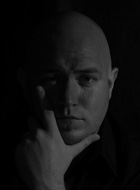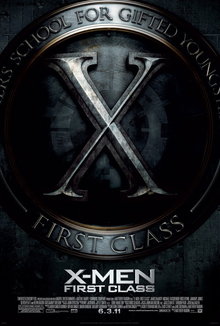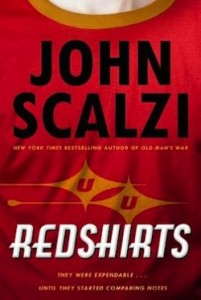written by David Steffen
In Loving Memory of Aria Steffen
Born February 14, 2007
Adopted February 21, 2008
Died December 10, 2012

This is the story of my first dog. This is the story of the first dog that Heather was really responsible for. This is the story of Aria the papillon. Here head smelled like strawberries and her feet smelled like Fritoes. She had the name Aria when we got her–we thought of renaming her Oreo but it didn’t stick. Over the years we had many nicknames for her–Ariana, Missy Lu, Missy Moo, Lu Lu Bell, many others.
Aria’s Life
Bringing Her Home
In February of 2008, Heather and I were living in an apartment in Eden Prairie. Heather was nearing the end of her year of rotations for school before she became a full pharmacist, we were just starting to think about buying our first house together, and we’d started to think about getting a dog once we lived in a home that allowed it. Heather had always had dogs around her home when she was growing up and she knew that she wanted to have dogs again at some point when she was out of school and we lived in a place that allowed dogs.
 I’d told our friend (and my co-worker) Becky D about dogs because she is a dog lover, and had two lovey dovey Staffordshires of her own. So she forwarded on an email from a friend of hers who was looking for a home for a 1-year old papillon dog named Aria who they’d decided they couldn’t keep. After her first home she’d been to 3 or 4 other foster homes in quick succession and if no one claimed her by the next day she would be dropped off at the pound the next day.
I’d told our friend (and my co-worker) Becky D about dogs because she is a dog lover, and had two lovey dovey Staffordshires of her own. So she forwarded on an email from a friend of hers who was looking for a home for a 1-year old papillon dog named Aria who they’d decided they couldn’t keep. After her first home she’d been to 3 or 4 other foster homes in quick succession and if no one claimed her by the next day she would be dropped off at the pound the next day.
Heather was used to poodles, who don’t shed, though she’d always liked papillons. I had never had a dog long term (not counting a time when I had one for 2 weeks when I was a kid), and with that combined with our living situation and her school, we were apprehensive. We didn’t think it was the right time, but we decided to go for a meet-and-greet and just see how the dog reacted to us.
 We went to her current foster home that night, and the moment that the foster mom carried her around the corner Aria was wiggling like crazy to meet us. She jumped into our arms and licked our faces as if we were long lost friends and she’d already decided that we were taking her home. She was a beautiful dog, with those big ears that looked like fringed butterfly wings (“papillon” means “butterfly” in French, the reason for the breed’s name). We looked at each other and we’d both already decided that we wanted to take this little girl home. We took her home to our apartment and within minutes she’d plopped down on the armrest of the couch with a bone, already queen of the castle. She was already called “Aria” when we got her; we’d hoped to pick a name for her ourselves, but she already knew this one so well we stuck with it.
We went to her current foster home that night, and the moment that the foster mom carried her around the corner Aria was wiggling like crazy to meet us. She jumped into our arms and licked our faces as if we were long lost friends and she’d already decided that we were taking her home. She was a beautiful dog, with those big ears that looked like fringed butterfly wings (“papillon” means “butterfly” in French, the reason for the breed’s name). We looked at each other and we’d both already decided that we wanted to take this little girl home. We took her home to our apartment and within minutes she’d plopped down on the armrest of the couch with a bone, already queen of the castle. She was already called “Aria” when we got her; we’d hoped to pick a name for her ourselves, but she already knew this one so well we stuck with it.
The first few months were stressful for all three of us. Aria went with us happily, but you could tell that she was always worried that we would just be another temporary family. She went into her kennel every morning when we had to leave with a treat to reward her. She would not touch the treat all day as she sat in the kennel. When we let her out of her kennel in the afternoon she would charge out and greet us and go running around the house in joy, then would come back to the kennel and eat the treat, and then run around some more. She was always so happy when we came back.
 She came with a little teeny-tiny pet carrier that was really too small for her size. But she must’ve had good associations with it because if you opened up the door she’d crawl right in and somehow get turned around in the tight quarters. Even though we didn’t use that to travel with her, she would still do that years later.
She came with a little teeny-tiny pet carrier that was really too small for her size. But she must’ve had good associations with it because if you opened up the door she’d crawl right in and somehow get turned around in the tight quarters. Even though we didn’t use that to travel with her, she would still do that years later.
We were nervous about keeping her in the apartment where we couldn’t have dogs. We tried to keep her quiet, but she always has been very reactive to noises and a toddler lived in the apartment above us who never seemed to sleep. We tried to sneak her in and out as quietly as we could with a towel over her head so that she wouldn’t see people and react to them. We hunted for houses with even more enthusiasm so that we could settle in somewhere where we wouldn’t have to keep her a secret. We were not without a backup plan, for Aria to stay at Heather’s parent’s house in South Dakota until we could get settled in, but we didn’t want to do that if we didn’t have to, since she’d had so many homes in so short a time already.
We put Aria in doggy daycare while we were at work so that her barking wouldn’t be a problem during the day when we weren’t there. Every day when we dropped her off she was excited to see the other dogs there again but anxious that we were leaving her, and when we picked her up again she was so incredibly excited.
 Because of Heather’s school schedule, she was usually home before I was. Heather could get Aria back in the apartment without too much chance of noise (going up the less-traveled back stairwell to cut down on barking at people), but getting me back into the apartment an hour or two later was a challenge that took some creative thinking, and which ended up showing us how good Aria was at making associations. If she heard the key in the door, Aria barked like crazy. If she heard the doorknob turn from outside or a knock at the door. Even if Heather took Aria into the other room and I tried to slip in very quietly she barked like crazy as soon as she saw that someone had gotten into the apartment when she wasn’t looking. But we discovered, after many days of frustrating experimentation with this procedure, that if Heather left the apartment and came back in escorting me, Aria wouldn’t bark at all, just give me kisses and greetings. So, every day when I got back from work, I would call Heather’s cell phone on my cell phone, and Heather would step out into the hallway with me, shut the door, and then come back in with me a moment later. Heather had her phone set up with different ringtones for different callers, and mine sounded different than everyone else’s. Aria picked up this pattern so that if anyone else called Heather with their different ringtones Aria would ignore the ringtone as unimportant, but if the phone rang with my ringtone she would dash over to the door to wait for Heather to escort me in.
Because of Heather’s school schedule, she was usually home before I was. Heather could get Aria back in the apartment without too much chance of noise (going up the less-traveled back stairwell to cut down on barking at people), but getting me back into the apartment an hour or two later was a challenge that took some creative thinking, and which ended up showing us how good Aria was at making associations. If she heard the key in the door, Aria barked like crazy. If she heard the doorknob turn from outside or a knock at the door. Even if Heather took Aria into the other room and I tried to slip in very quietly she barked like crazy as soon as she saw that someone had gotten into the apartment when she wasn’t looking. But we discovered, after many days of frustrating experimentation with this procedure, that if Heather left the apartment and came back in escorting me, Aria wouldn’t bark at all, just give me kisses and greetings. So, every day when I got back from work, I would call Heather’s cell phone on my cell phone, and Heather would step out into the hallway with me, shut the door, and then come back in with me a moment later. Heather had her phone set up with different ringtones for different callers, and mine sounded different than everyone else’s. Aria picked up this pattern so that if anyone else called Heather with their different ringtones Aria would ignore the ringtone as unimportant, but if the phone rang with my ringtone she would dash over to the door to wait for Heather to escort me in.
 We loved taking her for walks. Once were out of the apartment building we didn’t have to worry about who saw her and she could just be the silly active puppy that she was. She loved playing in the snow, bouncing around like a madwoman when there was some accumulation to run through.
We loved taking her for walks. Once were out of the apartment building we didn’t have to worry about who saw her and she could just be the silly active puppy that she was. She loved playing in the snow, bouncing around like a madwoman when there was some accumulation to run through.
In the end we were caught by the maintenance men of our apartment building who didn’t seem concerned by the half-dozen other dogs that we had seen coming in and out of the other apartment buildings in the complex that also didn’t allow dogs. By that time we were in the process of buying our house and we stretched things out long enough so that we could just move ourselves over to the house and let our apartment lease expire.
 We were worried that Aria would be anxious at the new change in scenery after only a few months with us, so to try to help her along we bought a 79 cent toy from a Petsmart clearance bin that we would give to her at the house when we visited for the first time. It was the simplest of toys, a pink poof with a squeaker in it. When we gave her the toy she ran around the house playing with it, exploring all the rooms. “This is so much better than that noisy apartment,” she said with her reaction.
We were worried that Aria would be anxious at the new change in scenery after only a few months with us, so to try to help her along we bought a 79 cent toy from a Petsmart clearance bin that we would give to her at the house when we visited for the first time. It was the simplest of toys, a pink poof with a squeaker in it. When we gave her the toy she ran around the house playing with it, exploring all the rooms. “This is so much better than that noisy apartment,” she said with her reaction.
With the Other Animals
Over the five years that she was with us, she had lots of other animals to play with.
With Cooper
 Cooper is the toy poodle that is owned by Heather’s parents. Before we got Aria, he hadn’t really had anything to do with other animals. Let’s just say that Aria and Cooper did not hit it off. Well, she was friendly and polite and always trying to initiate playtime, but he didn’t want anything to do with her. One of the funniest pictures we found while we were going through our memory cards to compile an Aria album was Aria and Cooper’s first meeting, where both dogs are being held next to each other and Aria is stretching to sniff him and he is stretching to get as far away from her as possible. They learned to get along well enough over the following years, and even learned to play with each other. Both of them were big fans of playing fetch though Aria was much more competitive and would not hesitate to knock him out of the way to get at that ball.
Cooper is the toy poodle that is owned by Heather’s parents. Before we got Aria, he hadn’t really had anything to do with other animals. Let’s just say that Aria and Cooper did not hit it off. Well, she was friendly and polite and always trying to initiate playtime, but he didn’t want anything to do with her. One of the funniest pictures we found while we were going through our memory cards to compile an Aria album was Aria and Cooper’s first meeting, where both dogs are being held next to each other and Aria is stretching to sniff him and he is stretching to get as far away from her as possible. They learned to get along well enough over the following years, and even learned to play with each other. Both of them were big fans of playing fetch though Aria was much more competitive and would not hesitate to knock him out of the way to get at that ball.
With Mikko
 We settled in to the house, Heather graduated from pharmacy school, and we started thinking about getting a dog to be Aria’s playmate. We’d gotten used to Aria’s level of shedding, but we were still used to non-shedding poodles, so Heather found a local poodle rescue, Picket Fence Poodles, and started watching their listings as poodles came in and out. And there we met Perry, a little white 7-month old poodle. He was born with a genetic condition where his kneecaps lacked the groove that normal kneecaps have to hold them in place. After he was born he wasn’t able to walk and his breeders decided to put him to sleep. But he was so cute that they put it off and put it off, carrying him around all the while. In the meantime, he developed enough muscle to lock the kneecaps in place and he just started walking on his own–so they gave him over to Gail at Picket Fence Poodles. He was a cutie, and was immediately friendly and playful with us, and we ended up taking Perry home after a meet-and-greet, with the warning that he would probably never jump or run or take the stairs because of his condition.
We settled in to the house, Heather graduated from pharmacy school, and we started thinking about getting a dog to be Aria’s playmate. We’d gotten used to Aria’s level of shedding, but we were still used to non-shedding poodles, so Heather found a local poodle rescue, Picket Fence Poodles, and started watching their listings as poodles came in and out. And there we met Perry, a little white 7-month old poodle. He was born with a genetic condition where his kneecaps lacked the groove that normal kneecaps have to hold them in place. After he was born he wasn’t able to walk and his breeders decided to put him to sleep. But he was so cute that they put it off and put it off, carrying him around all the while. In the meantime, he developed enough muscle to lock the kneecaps in place and he just started walking on his own–so they gave him over to Gail at Picket Fence Poodles. He was a cutie, and was immediately friendly and playful with us, and we ended up taking Perry home after a meet-and-greet, with the warning that he would probably never jump or run or take the stairs because of his condition.
 Now, Perry didn’t know his name at all, so Perry became Mikko. Aria and Mikko hit it off right away, playing like they’d known each other forever. Aria, our mischievous little girl, figured out quickly what he couldn’t do and she pushed him every day to expand his boundaries. She’d jump up on the couch with a toy so that he couldn’t get up there to get it. He would try to imitate her jumping and throw himself against the couch in his excitement. She’d inch over to the edge so that just a little bit of the toy was in his reach if he stood on his hind legs and then she’d let him tug her off the edge with it and they’d roughhouse on the floor for a bit until she jumped back up. Gradually she taught him to jump up on the back of the couch too, and to run super fast. She also helped coax him to learn to climb stairs because she’d use the stairs as a barrier between them while she was playing and would entice him to learn how to do it.
Now, Perry didn’t know his name at all, so Perry became Mikko. Aria and Mikko hit it off right away, playing like they’d known each other forever. Aria, our mischievous little girl, figured out quickly what he couldn’t do and she pushed him every day to expand his boundaries. She’d jump up on the couch with a toy so that he couldn’t get up there to get it. He would try to imitate her jumping and throw himself against the couch in his excitement. She’d inch over to the edge so that just a little bit of the toy was in his reach if he stood on his hind legs and then she’d let him tug her off the edge with it and they’d roughhouse on the floor for a bit until she jumped back up. Gradually she taught him to jump up on the back of the couch too, and to run super fast. She also helped coax him to learn to climb stairs because she’d use the stairs as a barrier between them while she was playing and would entice him to learn how to do it.
 They spent some of those early days establishing who would be the leader between those two, but once Aria established herself as the boss they almost never fought, just the occasional squabble over a bone. Those two have been best friends and playmates ever since, filling many idle moments with roughhousing and chasing. One of her favorite ways to roughhouse was to flip over onto her back and wait for Mikko to come at her and then she would kick in the air with all four of her muscular little legs. They both also loved it when she would chase him around the couch downstairs which was positioned in the middle of the room. She was more muscular and faster than Mikko, but he could make a 90 degree turn on a dime while her momentum would carry her in a much wider arc. This would go on for minutes until finally she caught him and then they’d roughhouse some more. She’d make the strangest vocalizations while she was playing, too, not just barks but weird inquisitive sounds and frustrated sounds from grunts to howls to sounds there are no words for.
They spent some of those early days establishing who would be the leader between those two, but once Aria established herself as the boss they almost never fought, just the occasional squabble over a bone. Those two have been best friends and playmates ever since, filling many idle moments with roughhousing and chasing. One of her favorite ways to roughhouse was to flip over onto her back and wait for Mikko to come at her and then she would kick in the air with all four of her muscular little legs. They both also loved it when she would chase him around the couch downstairs which was positioned in the middle of the room. She was more muscular and faster than Mikko, but he could make a 90 degree turn on a dime while her momentum would carry her in a much wider arc. This would go on for minutes until finally she caught him and then they’d roughhouse some more. She’d make the strangest vocalizations while she was playing, too, not just barks but weird inquisitive sounds and frustrated sounds from grunts to howls to sounds there are no words for.
With Timmy
 We had really liked working with Picket Fence Poodles for adopting Mikko, and so Heather checked their website daily for new arrivals. In 2009, they rescued several dogs from a puppy mill, two little red poodles and a one-eyed Pekingese. We drove up to Elk River for a visit, and played with the three of them. The girl poodle, Jasmine, was very skittish, you could tell that she was sweet but very afraid. Rosie the Pekingese seemed to have some bb’s under skin, signs of a hard life, but she was very friendly. Timmy
We had really liked working with Picket Fence Poodles for adopting Mikko, and so Heather checked their website daily for new arrivals. In 2009, they rescued several dogs from a puppy mill, two little red poodles and a one-eyed Pekingese. We drove up to Elk River for a visit, and played with the three of them. The girl poodle, Jasmine, was very skittish, you could tell that she was sweet but very afraid. Rosie the Pekingese seemed to have some bb’s under skin, signs of a hard life, but she was very friendly. Timmy
the boy poodle was very enthusiastic and acted like a puppy as if he weren’t a 7 year old retired puppy mill breeder. When Heather and I visited, we were thinking Rosie might be a good choice, but when we took Mikko and Aria up for a visit, Rosie and Aria made some sparks between these two bossy girl dogs. I expect they would’ve sorted it out eventually, as dogs do, but in the meantime Mikko was bringing out even more of the puppy-like behavior in Timmy, and we ended up taking Timmy home that very day.
 It took a little while for Timmy and Mikko to really roughhouse, because Timmy wasn’t used to that kind of interaction with other dogs, but they eventually did. Aria and Timmy never quite made it to roughhousing, but not from her lack of trying. She was just a little too scary and a little too much bigger than him, plopping down on her back with her legs kicking fiercely in the air.
It took a little while for Timmy and Mikko to really roughhouse, because Timmy wasn’t used to that kind of interaction with other dogs, but they eventually did. Aria and Timmy never quite made it to roughhousing, but not from her lack of trying. She was just a little too scary and a little too much bigger than him, plopping down on her back with her legs kicking fiercely in the air.
But Aria and Timmy had plenty of other ways to interact over the years. Getting Timmy to chew bones was always difficult–he hadn’t had such luxuries in the puppy mill, and his bad teeth made it less fun for him. But when we gave bones to the dogs he would hover next to Aria while she chewed hers into a soggy pathetic state and then when she abandoned it he would snatch it up and chomp happily away.
With Lucy
Just 6 months or so ago, Heather’s parents got a cat named Lucy. Our dogs had never been around cats before so it was a learning experience for everybody, including us owners who had to try to figure out if the animals were playing or fighting at any given time. This fall Heather’s mom came up to stay with us to help out around the house when Heather was suffering through extreme nausea due to hyperemesis in the early stages of her pregnancy. Lucy and Cooper came with her, of course, and they were up here for long enough to let the animals really feel each other out and figure out their boundaries. We’d keep the stairway blocked with a baby gate to keep the dogs upstairs and Lucy could fit between the stairwell railing slats so she could come and go. She’d come upstairs and play with the dogs for a while. One of my favorite images from this time was Lucy propped upright on her haunches and boxing at Aria’s face while Aria tried to catch the paws in her mouth. So funny!
What Made Her Special
Aria was a one of a kind, as with any of our animals. So many things made her different from the others.
Brains
 Aria’s high intelligence and high food motivation made her great at learning tricks. Promise her a treat and she’d try to do most anything. First we taught her to sit, then to lie down, then to shake. Out of habit we’d ask for each behavior in the order that we had taught them. Well, once she had them down, she got so impatient and once you pulled out the treats she would quickly sit, then lie down, then shake before you’d asked for anything. She knew the order, and she wanted to earn that treat! So we had to start mixing up the order so that she couldn’t just do them ahead of time. We taught her a few other tricks to, to spin right or left, but the absolute best trick was to play dead. You gave the command by pointing your finger at her like a gun and saying “Bang!” That was a challenge to teach, because it’s a little more complicated motion–teaching her to sit then to lie down then gently push her over onto her side, but she was up to the challenge. To do the trick correctly, she had to keel over and stay lying on her side until you said “Okay!” to release her. Sometimes she’d get impatient and jump back up, in which case you’d have to fake-shoot her again until she did it right. Sometimes, when she was particularly impatient, she’d do her Rambo impersonation and take bullet after bullet, staggering but staying upright before she went down. That was always a huge hit with visitors.
Aria’s high intelligence and high food motivation made her great at learning tricks. Promise her a treat and she’d try to do most anything. First we taught her to sit, then to lie down, then to shake. Out of habit we’d ask for each behavior in the order that we had taught them. Well, once she had them down, she got so impatient and once you pulled out the treats she would quickly sit, then lie down, then shake before you’d asked for anything. She knew the order, and she wanted to earn that treat! So we had to start mixing up the order so that she couldn’t just do them ahead of time. We taught her a few other tricks to, to spin right or left, but the absolute best trick was to play dead. You gave the command by pointing your finger at her like a gun and saying “Bang!” That was a challenge to teach, because it’s a little more complicated motion–teaching her to sit then to lie down then gently push her over onto her side, but she was up to the challenge. To do the trick correctly, she had to keel over and stay lying on her side until you said “Okay!” to release her. Sometimes she’d get impatient and jump back up, in which case you’d have to fake-shoot her again until she did it right. Sometimes, when she was particularly impatient, she’d do her Rambo impersonation and take bullet after bullet, staggering but staying upright before she went down. That was always a huge hit with visitors.

You could always tell when one of the other dogs had done something naughty, like having an accident in the house, because Aria would stick by your side and wouldn’t leave it. She knew that she might get in trouble if you found the accident when she hadn’t been nearby.
She picked up words quickly enough that you had to be very careful what you said in association with her favorite things. We used to ask her if she wanted to go for a “walk”, and she learned that, but then it became difficult for Heather and I to ask each other about it ahead of time, so we started to say “park” and then “stroll” to vary the sound, but still she learned it. Eventually we ended up having to spell P-A-R-K, but even then she’d get suspicious because she could tell the difference in the cadence of spelling vs. speaking.
 She was good at picking up patterns. At some point she realized that when she licked your hands when you were holding her, that you would often set her down as a reaction, so she took advantage of that when you picked her up when she was being squirrelly. In the early days, I’d put her down when she started panting because I thought she was overheating, and she took advantage of that for a while too, making herself pant when she wanted to be put down! Then if you did put her down she’d go right back to running around at full pace again, breaking the illusion. She looked so funny when she was faking overheating, with her tongue hanging limply out of her mouth.
She was good at picking up patterns. At some point she realized that when she licked your hands when you were holding her, that you would often set her down as a reaction, so she took advantage of that when you picked her up when she was being squirrelly. In the early days, I’d put her down when she started panting because I thought she was overheating, and she took advantage of that for a while too, making herself pant when she wanted to be put down! Then if you did put her down she’d go right back to running around at full pace again, breaking the illusion. She looked so funny when she was faking overheating, with her tongue hanging limply out of her mouth.
 One of the biggest behaviors that we tried to get under control with training was her barking. Not that barking is bad, but her barks were so loud and so high pitched it wouldn’t take long to give you a splitting headache. One of the ways that we worked on that was to teach her to politely say “please” when she wanted you to throw a toy for her. Heather taught her to do that by making a lowering motion with her hand and whispering “say please” very quietly. Aria caught on to this surprisingly fast and could manage a whole range of volumes from her full volume bark all the way down to a very quiet “woof”. Mikko never really picked up on this trick the way she did. He only has two volumes–11 and 0, so when he would say “please” he would just flap his jaw and you could hear his teeth click but nothing else.
One of the biggest behaviors that we tried to get under control with training was her barking. Not that barking is bad, but her barks were so loud and so high pitched it wouldn’t take long to give you a splitting headache. One of the ways that we worked on that was to teach her to politely say “please” when she wanted you to throw a toy for her. Heather taught her to do that by making a lowering motion with her hand and whispering “say please” very quietly. Aria caught on to this surprisingly fast and could manage a whole range of volumes from her full volume bark all the way down to a very quiet “woof”. Mikko never really picked up on this trick the way she did. He only has two volumes–11 and 0, so when he would say “please” he would just flap his jaw and you could hear his teeth click but nothing else.
 The dogs faced off against her each other with a battle of wits each time they had bones to chew. Each dog was given one bone but, of course, the best bone was always the bone that the OTHER dog had. So they’d constantly try to get the bones from the other dogs in whatever way that they could. In Mikko’s early days in the family, she realized that she could get him to abandon his bone by barking at the door. He would drop everything to investigate and then she would make a U-turn and grab it. After a while he learned from that that he should grab his bone and carry it along while he checks the door.
The dogs faced off against her each other with a battle of wits each time they had bones to chew. Each dog was given one bone but, of course, the best bone was always the bone that the OTHER dog had. So they’d constantly try to get the bones from the other dogs in whatever way that they could. In Mikko’s early days in the family, she realized that she could get him to abandon his bone by barking at the door. He would drop everything to investigate and then she would make a U-turn and grab it. After a while he learned from that that he should grab his bone and carry it along while he checks the door.
We bought treat balls for the dogs which were basically hollow hard plastic balls with a small opening. If you filled them with small kibble, the kibble could fall out if the ball rolled a certain way. Timmy was never interested in them, and Mikko had limited success with them, but Aria figured them out. She would push the ball in straight lines across the room zigzagging everywhere, picking it up if it got stuck in a corner, over and over again until the treat ball was empty. She was a girl on a mission.
She was the only dog of ours that has howled on command. She would do it on her own when she got excited, and so we could take advantage of that by giving her a treat and associating it with command words, usually “woo woo” or “soup” (because there is a dog on “The Soup” TV show that howls.
Three months after we adopted her, we were headed out of the house to take a road trip to visit family. We had everything packed into the car, and we were just doing one last trip through the house to check doors and windows and lights. Aria followed along, nervous about all the activity. Downstairs by the patio door in the walkout basement Aria started freaking out about nothing that we could see, play bowing and barking and circling around the patio door. We figured she was just being a weirdo puppy, as she was only one year old and very playful. But when we went to investigate we found out that she was barking at something–an invasion of ants that had begun pouring in through a crack in the patio door enclosure! The first foot of carpet by that door was just thick with little squirming black bodies, and the door was covered in winged ones behind the blinds. A colony must have just sent out a new queen to colonize and they fancied our house! If she hadn’t done that we would’ve been gone for the next 5 days and who knows what an infestation we would’ve had to deal with. As it was, we postponed our departure by a few hours and went to work with the vacuum cleaner until there was nothing left and then laid ant poison for good measure. When we got home 5 days later everything was still fine, all because of Aria. She helped us find when we had mice for the first time too, always sniffing along the walls where the mice walked.
Energy
 She was the one in the house with boundless energy. Sometimes it was hard to take so much energy, barking fiercely each time a pedestrian or car passed on the street, guarding the house from dangerous squirrels and songbirds. But now everything seems too quiet.
She was the one in the house with boundless energy. Sometimes it was hard to take so much energy, barking fiercely each time a pedestrian or car passed on the street, guarding the house from dangerous squirrels and songbirds. But now everything seems too quiet.
On car trips she’d try to hop from the front to the back to the front to the back, which we didn’t want her to do as we were afraid a sudden stop would twist her leg as she was crossing between. So we’d tell her “front or back” and she’d have to pick one. But then sometimes when you weren’t paying attention she’d stand with her front feet on the center console with her feet on the backseat because she liked to stand there, a good view with direct air from the center vents.
One of the games that Heather liked to play with them was to lead them on a merry chase in a circle between the kitchen and living room, which form a circular path with each other. Aria would follow along behind as fast as she could, following Heather round and round. Mikko was always more wary of running on the hardwood floor in the kitchen so instead of making the whole circuit he’d run back and forth along the carpeted living room to watch each kitchen entrance.
 I don’t know how she could do this, but she could always tell exactly when we had arrived at the park, or at the house, or at Heather’s mom house, no matter how much driving occurred before it. She could go from a dead sleep to whining at this realization–I’d be curious if she recognized the driving stop/go patterns that woke her up to check out the surroundings or what.
I don’t know how she could do this, but she could always tell exactly when we had arrived at the park, or at the house, or at Heather’s mom house, no matter how much driving occurred before it. She could go from a dead sleep to whining at this realization–I’d be curious if she recognized the driving stop/go patterns that woke her up to check out the surroundings or what.
I haven’t seen other dogs do this, but she’d sometimes sneeze uncontrollably when she got excited. It didn’t seem to bother her, and it was cute.
 She loved to bask in the sun with the other dogs, or to sit by the fireplace in the winter.
She loved to bask in the sun with the other dogs, or to sit by the fireplace in the winter.
Every morning when Heather would get ready, Aria would slip into the closet quietly and lurk under the overhanging clothes. She loved to do this, and would stay in there quietly even when the door was shut behind her, until some time later when we couldn’t figure out where she was and would go to find her. Mikko joined in on the game by pointing her out to us, whining by the closet door. If we asked “Where’s Aria?” he would usually know where to go, closet or otherwise.
When Aria would have to wait in the car while we went in somewhere, she’d watch for us as many dogs would do. But she was so determined to watch and so athletic that she could perch on the seatback of the back seat, pointed to look out the hatchback, perched almost like a bird.
Aria had a love/hate relationship with Heather’s dad’s cowboy boots. He’d pull them on to step outside from time to time and the clomping of the boots on the hardwood floors drove Aria crazy, she’d charge out there and bark and then he would clomp his boots at her and she’d run away and then back again.
Christmastime was always extra fun with her around because we taught her to help us open presents–if you started unwrapping a present and then gave her the open flap of the wrapping paper, she’d pull gently at it, eyeing you to make sure she wasn’t doing something wrong. When you didn’t scold her she’d go at it with more and more energy.
Affection
Of our dogs she was the only one who would consistently kiss you on command. If you made smooching sounds or said “Kisses” she’d lick your nose or lips, whichever were closer.
She was a very expressive dog, especially her big pointy ears. They’d come up in sharp points if she was feeling mischievous, open up wide if she was curious or excited, fold flat against her head if she was ashamed or acting polite when meeting another dog. Her eyes would open so wide they’d just about pop at any unfamiliar sound or at the mention of food. She’d wave her tail like a pompom if you said her name or one of her favorite words.
 Aria would usually act like she didn’t want lovey-dovey cuddling and stuff. She’d let you pick her up but would struggle and give you looks if you tried to snuggle her. We were sure that was just an act. At night she’d sleep under the covers and would curl up against Heather’s feet or try to sneak up next to Heather’s belly to sleep. She’d also rest her head on your shoulder when you sat on the couch, her version of cuddling.
Aria would usually act like she didn’t want lovey-dovey cuddling and stuff. She’d let you pick her up but would struggle and give you looks if you tried to snuggle her. We were sure that was just an act. At night she’d sleep under the covers and would curl up against Heather’s feet or try to sneak up next to Heather’s belly to sleep. She’d also rest her head on your shoulder when you sat on the couch, her version of cuddling.
When there were noises while we were sleeping, company rustling around or people outside or anything else, Aria would make a racket when she heard. That was when she got belly time with me, which was supposedly a punishment but I actually liked it and I think she did too. I’d lay her on her side and pin her down with an arm at first because that would usually keep her quiet. After a while I’d let up on her and she’d just curl up against my belly.
When Heather would take a bath she’d always jump up on the back of the bathtub and sit with Heather. Until the day when she almost fell in–she learned her lesson! If you picked her up and held her over the bathwater, she would paddle her legs like she was swimming.
If she was curled up with you on the couch and she wanted to nap, she would often bury her head in you armpit or under your arm–any way to block out the light.
 Aria loved to ride across the house in a laundry basket full of warm clothes fresh from the dryer.
Aria loved to ride across the house in a laundry basket full of warm clothes fresh from the dryer.
 Whenever we took out the suitcase to pack for a trip she’d plop herself down in it and just lie down or chew a bone to make sure you weren’t going to sneak away without her.
Whenever we took out the suitcase to pack for a trip she’d plop herself down in it and just lie down or chew a bone to make sure you weren’t going to sneak away without her.
She was always the one of our dogs most in tune with how you were feeling. If you were in bed sick she’d check on you from time to time, give you a quick kiss to make sure you were still alive, and then she’d stand watch over you. If someone was crying, she’d comfort them and kiss away their tears, going to hunt them down to comfort them if necessary.
 Sometimes Heather and I would mock fight with each other, just pretending to bop each other. Aria would not allow those kind of shenanigans! She would decide which one of us had been the instigator this time (not always correctly deciding, mind you) and would bark at the other one until we stopped.
Sometimes Heather and I would mock fight with each other, just pretending to bop each other. Aria would not allow those kind of shenanigans! She would decide which one of us had been the instigator this time (not always correctly deciding, mind you) and would bark at the other one until we stopped.
It surprised us both that Aria seemed to bond to me more in the beginning than to Heather, since Heather has always had a dog and has always been more of a “natural”. But some time later we took Aria in for a Lyme Disease vaccination that left her basically paralyzed for a day. Whenever people would leave her she would try to follow and would shriek out in pain when she stood on the leg. Heather stayed by Aria’s dog bed that whole time, comforting her and feeding her string cheese, and that seemed to bring them much closer together.
Playtime
Just like Mikko and Timmy, she would be lazy and energetic in fits and spurts. But unlike the other two, it was always easy to get her from lazy to energetic. All you had to do was pretend like you were stalking her. Start from the other side of the room and creep along as if you’re trying to be quiet, locking your eyes on her. First she’d look at you sidelong, then her tail would wag tentatively, then all of a sudden she’d jump to her feet and would run from you and you could chase her around the room for a while.
 Her favorite toys of all time were definitely rubber balls with squeakers. When she felt like initiating playtime she’d find one and squeak it over and over again until you came to play. Another way to get her riled up was just to say “squeak squeak squeak” in a high pitched voice that sounded like a squeaky ball, then she’d go and try to find the nearest squeaky toy to play with you.
Her favorite toys of all time were definitely rubber balls with squeakers. When she felt like initiating playtime she’d find one and squeak it over and over again until you came to play. Another way to get her riled up was just to say “squeak squeak squeak” in a high pitched voice that sounded like a squeaky ball, then she’d go and try to find the nearest squeaky toy to play with you.
She was a very good fetcher–she’d always grab any toy that you threw for her, and the more competition the better. She wasn’t afraid to body slam the other dogs out of her way to win the game. When she played she didn’t give it a half effort–she played to win. Getting her to give you the toy back to throw was never easy–if you wanted it back right away you’d have to chase her down (sometimes you could get her to bring it if you waited around long enough) and then you’d also have to play tug of war to get it back. Many a rubber ball was ripped open by those tug of war games and at some point they became hard to find and replace so you had to be really careful to try to preserve those that were left.
 Another of her all-time favorite toys was a laser pointer that she knew by the name “dot”. The moment you said the word “dot”, she would stare intently at the ground, ready to chase after the little red spot. Usually we’d play it downstairs where she had a good 20 or 30 feet to run. She’d run back and forth in a track, pursuing the spot of light, reaching full speed with each run, pausing only occasionally to catch her breath, until she could run no more and took a break. Mikko never showed any interest in the dot itself, but he always got excited when it came out because he reacted to Aria when she was playing dot–he’d really want to grab her by the tail and just get pulled along behind her like a waterskier. So… we had to pick him up for her to be able to play. Our rule about playing dot was that Aria could only play it if she had pooped since her most recent meal, because otherwise she’d almost always have a poop accident on the floor in her extreme excitement. And, in a pinch, she didn’t have to have the laser pointer to play dot. She’d get just as excited about any reflected light, off laptop screens, or Heather’s watch while she used the bathroom.
Another of her all-time favorite toys was a laser pointer that she knew by the name “dot”. The moment you said the word “dot”, she would stare intently at the ground, ready to chase after the little red spot. Usually we’d play it downstairs where she had a good 20 or 30 feet to run. She’d run back and forth in a track, pursuing the spot of light, reaching full speed with each run, pausing only occasionally to catch her breath, until she could run no more and took a break. Mikko never showed any interest in the dot itself, but he always got excited when it came out because he reacted to Aria when she was playing dot–he’d really want to grab her by the tail and just get pulled along behind her like a waterskier. So… we had to pick him up for her to be able to play. Our rule about playing dot was that Aria could only play it if she had pooped since her most recent meal, because otherwise she’d almost always have a poop accident on the floor in her extreme excitement. And, in a pinch, she didn’t have to have the laser pointer to play dot. She’d get just as excited about any reflected light, off laptop screens, or Heather’s watch while she used the bathroom.
 Speaking of poop accidents, you’d have to be really careful about taking her to Petsmart or the groomer, because there, too, she would get so excited she’d just lose control. It was embarrassing, but also funny and endearing because it was all rooted in her zest for life.
Speaking of poop accidents, you’d have to be really careful about taking her to Petsmart or the groomer, because there, too, she would get so excited she’d just lose control. It was embarrassing, but also funny and endearing because it was all rooted in her zest for life.
Oddly enough, one of her favorite playthings was fingernails. From time to time, Heather would clip off a fingernail and would poke Aria a little bit with it. Aria just got crazy, trying to chew it and howling when Heather wouldn’t give it to her, hopping all over the place and then coming back for it. She also had an insatiable interest in bodily nooks and crannies, especially ears and belly buttons, which she would investigate at every opportunity. Heather’s mom has hearing aids which would squeal when Aria stuck her nose in there, so that sound has memories of her in it.
Food
Aria was a foodie, through and through. When she heard the first clink of their breakfast dishes on the counter for filling, or the light switch over their eating area, she would charge out to the kitchen to be underfoot while I carried them over. As I carried the dishes over, she would do loop-de-loops in her uncontainable excitement, and bark and bark and bark. We had all three of them trained to wait until after we said the bowls down and said “Okay” before digging in, otherwise you had two hands and three bowls and one sad puppy left out. As soon as you said the word (and she’d always try to anticipate it so if you used a similar timing every day between setting down the last bowl and saying “Okay” she’d just dig in after that timing) she would be inhaling that food so fast. In seconds she’d have eaten her whole portion and would want to hover over the other two to dive in as soon as she could–we trained her and Mikko to come out to the living room as soon as they were finished because Timmy sometimes took coaxing and was always a slow eater even then. Mikko would get to eat Timmy’s last bits that he wouldn’t dig out for breakfast and Aria would get them in the evening (Mikko Morning, Aria Afternoon). No matter if she was the first one to lick them, she would definitely still lick the bowl clean and the floor around the bowl, once, twice, three times, four times, or more on some days. When you’d take her away from the breakfast area, she’d still gaze out there for a while and you could tell she was thinking of those bowls that maybe weren’t as clean as she could make them, and the next time you went back out there you’d hear the clink-clink of her dog tags against the bowl as she licked.
 Even better than dog food, she loved any kind of food that she’d see people eating. The sound of a knife on a cutting board would draw her from the other end of the house because she knew she’d get cucumber slices if those were being chopped, or carrots, or deli meat, or many other fun foods. She liked to hover in the kitchen any time someone was working on the counters, just in case, watching the food with the focus of an Olympic athlete. You had to be really careful if you were handling anything she couldn’t have, like onions or grapes or chocolate. She ran off with a whole banana peel once and had to be pried away from it to keep her from swallowing the whole thing down.
Even better than dog food, she loved any kind of food that she’d see people eating. The sound of a knife on a cutting board would draw her from the other end of the house because she knew she’d get cucumber slices if those were being chopped, or carrots, or deli meat, or many other fun foods. She liked to hover in the kitchen any time someone was working on the counters, just in case, watching the food with the focus of an Olympic athlete. You had to be really careful if you were handling anything she couldn’t have, like onions or grapes or chocolate. She ran off with a whole banana peel once and had to be pried away from it to keep her from swallowing the whole thing down.
Even while she lurked, though, she was always afraid of things falling on her–I didn’t realize Heather and I were that clumsy! If you dropped something that wasn’t food, even something insignificant like a Ziploc bag or something, she’d run for it. Or she’d try to, anyway, her claws making a comical cartoon scramble on the hardwood floor. She was always afraid of any kind of machine that made noise on its own, and the hand mixer was the scariest of all. She wouldn’t lurk in the kitchen when that was running, but she would peer nervously around the corner as Heather used it, in case the hand mixer ate Heather right up.
Whenever we returned with bags of groceries, she would always go to investigate and sniff the grocery bags before she greeted us. She knew her priorities! She mostly wouldn’t take anything out of the bags. Mostly. She did tear into a bag of marshmallows once, but no harm done…
 She loved Greenies too, though she didn’t eat them the way that we would rather she have. Greenies are vegetable compresses shaped like little toothbrushes that are supposed to help clean the dogs teeth if they chew on them. Unless you chomp them down in 10 seconds like Aria did. We had to say “G-Things” or “Brownies” when talking about this amongst ourselves, otherwise she’d get all excited.
She loved Greenies too, though she didn’t eat them the way that we would rather she have. Greenies are vegetable compresses shaped like little toothbrushes that are supposed to help clean the dogs teeth if they chew on them. Unless you chomp them down in 10 seconds like Aria did. We had to say “G-Things” or “Brownies” when talking about this amongst ourselves, otherwise she’d get all excited.
We always give the dogs a treat when they go into their kennels when we have to leave the house. It makes it a happy time instead of a sad time, and makes a big difference. Aria knew that treats were associated with kennels so while you were coaxing the other two to come downstairs to get their treat, she’d already charged down the stairs by herself and was waiting in there for you.
It’s strange to think back on the first days that we had her, when she would leave her treat untouched in the kennel all day. In those days if you gave her a treat she’d often go mime burying it in the carpet in some corner of the house. She continued to do that until we got Mikko, and then he’d follow along behind her and grab the treat as soon as she left it–and then she’d frantically look for it later.
Marking the Signpost
One of Aria’s favorite pastimes was marking signs and trees and bridgeposts and especially streetlamps at the park. She wasn’t very good at budgeting her urine, though, so her first target would get a thorough covering, her second target would get a little splash, and then all the rest would get a drip or two. That didn’t stop her, not in the slightest–it was the principle of the thing! She’s the only girl dog I’ve seen who often peed liked a boy dog, lifting one leg to try to mark. Which didn’t work all that well, but if the boys could do it she surely could! Even funnier, she would occasionally do a move I like to call the “kung fu pee”, where she would keep both front feet on the ground and plant both back feet against a tree trunk as high as they would go and pee like that–she didn’t do that too often, and when she did it was over in a flash so we never managed to get a photo of it, but it was one of the funniest things I’ve ever seen. And no matter where she would mark, Timmy would follow along behind her and mark too, and they’d always pick the same spots. We had to watch out for that on the walk–she peed on his head more than once when he was sniffing at a particularly enticing spot that she just couldn’t wait to mark. If only it were that easy to get her to pee at home. She would always save up for half a day at a time at home, maybe in the hopes that she would get to go for a walk and mark things.
The Sad Part
If you want a happy story today, leave off here. Every complete dog story has a sad part. It’s the burden that pet owners take on. Our little companions have a zest for life that humans sometimes find difficult to find on their own, but they also live so much less time. Our happy times are happier with animals around, but this comes with its own price of the pain that comes when they pass away. The price is worth what these animals bring to our lives, but that does not make it any easier.
The first sign that there was something wrong with Aria came on Wednesday December 5, 2012. Heather was home with the dogs on a day off, a day that seemed like any other day off with the dogs. The wind was blowing hard that day, and when a particularly heavy gust rattled the house Aria and Mikko went running to the door to investigate. Heather heard a thump and went to find Aria lying on the ground by the door, and not getting up right away. Finally she got up, but she’d had an accidental bladder release. Heather called me, and we both thought she needed to go the vet because that could be a seizure.
 Heather took her to the vet and they ran some tests and discovered that her PCV (packed cell volume), a measure of red blood cells in the blood was low, only about 24, which should normally be above 40. The symptoms suggested that this could be Immune Mediated Hemolytic Anemia (IMHA), a very serious condition with a very guarded outlook (maybe 50/50 chance of mortality) where the body’s immune system attacks its own red blood cells. They took some further tests, and gave us some Prednisone (to suppress the immune system) and antibiotics (in case of parasites being the cause) to try to treat the most likely causes of such a problem, and they sent her home with us. They said we were missing some of the key indicators of IMHA, lack of spherocytes, lack of agglutenation, and a negative Coombs test, but it was as yet their best estimation.
Heather took her to the vet and they ran some tests and discovered that her PCV (packed cell volume), a measure of red blood cells in the blood was low, only about 24, which should normally be above 40. The symptoms suggested that this could be Immune Mediated Hemolytic Anemia (IMHA), a very serious condition with a very guarded outlook (maybe 50/50 chance of mortality) where the body’s immune system attacks its own red blood cells. They took some further tests, and gave us some Prednisone (to suppress the immune system) and antibiotics (in case of parasites being the cause) to try to treat the most likely causes of such a problem, and they sent her home with us. They said we were missing some of the key indicators of IMHA, lack of spherocytes, lack of agglutenation, and a negative Coombs test, but it was as yet their best estimation.
Other than that one incident, she still seemed okay, other than very pale gums which we had not noticed before. Maybe a little lower energy than usual but she didn’t seem to be feeling sick or in pain or anything. She slept that night at home, the last night that she would spend at home.
 Heather and I took the next morning off of work to take her back to the vet to have them test her PCV again, and they found that she’d dropped down to 17, and they recommended an immediate blood transfusion, which then took the rest of the afternoon. After the transfusion, her cell count was down a little bit more, to 16. We decided to take her to the University of Minnesota pet hospital because they are the best in the area, especially for difficult cases. First we took her home, fed her supper which she ate all of, but without her usual spastic energy for it.
Heather and I took the next morning off of work to take her back to the vet to have them test her PCV again, and they found that she’d dropped down to 17, and they recommended an immediate blood transfusion, which then took the rest of the afternoon. After the transfusion, her cell count was down a little bit more, to 16. We decided to take her to the University of Minnesota pet hospital because they are the best in the area, especially for difficult cases. First we took her home, fed her supper which she ate all of, but without her usual spastic energy for it.
We took her to the U of MN, where they checked her into the ICU. We met Dr. Stiller, an internal medicine resident who was Aria’s primary doctor for most of the time that Aria was in the ICU. They agreed with the diagnosis of IMHA being the most likely, but also agreed that some of the indicators didn’t seem quite right for that. But her treatment plan continued,taking blood samples every 12 hours, giving transfusions as necessary.
We brought her to the ICU Thursday night, and we both had to go back to work on Friday, but I came back during morning visiting hours with Becky D (the same one who connected us to the right people to get Aria in the first place) and the doctors let us stay a couple of hours, longer than visitors are supposed to. They have very nice little cubicles there with a couch and a lamp and Aria snoozed beside us while we sat. Heather and I came back that evening and stayed as long as they let us, as well as both visiting hours on Saturday and Sunday. The snow began falling steadily on Friday and continued to fall through the rest of the weekend, enough accumulation that we normally would’ve been staying at home. Saint Paul has the worst snow clearing procedures of any Midwestern city I’ve ever been in, but there was no way we were going to let Aria think that we had abandoned her there. At every visit she was happy to see us, and would wag her tail and give kisses. Most visits she would perk up at the sound of dogs or people walking past, and some days she would even bark. You could tell her energy was a little lower, but she still seemed like the same dog and she didn’t seem to be in pain. She started to show jaundiced coloring.
 On Saturday, her clotting factors in her blood started to have problems, and an ultrasound showed some preliminary oddities with her liver and heart. For the blood, the best treatment was to give her a plasma transfusion. With the clotting factors in place, there was not a great deal they could do about the ultrasound results, because it would be dangerous to do a biopsy. We’d been trying to stay hopeful, and it had been quite a roller coaster ride already, but this was another major problem stacked atop the first one. There was a possibility that the clotting was a stage of DIC, which is a disorder where the blood spontaneously forms tiny clots all over the place which can be a danger in itself, but it also uses up the clotting agents in the blood so that hemorrhaging is also a danger.
On Saturday, her clotting factors in her blood started to have problems, and an ultrasound showed some preliminary oddities with her liver and heart. For the blood, the best treatment was to give her a plasma transfusion. With the clotting factors in place, there was not a great deal they could do about the ultrasound results, because it would be dangerous to do a biopsy. We’d been trying to stay hopeful, and it had been quite a roller coaster ride already, but this was another major problem stacked atop the first one. There was a possibility that the clotting was a stage of DIC, which is a disorder where the blood spontaneously forms tiny clots all over the place which can be a danger in itself, but it also uses up the clotting agents in the blood so that hemorrhaging is also a danger.
 Dr. Stiller said that she took Aria out to the exercise yard to go potty, and on their way out they passed the visiting cubicle where we had usually visited her. Aria trotted right in and jumped up on the couch, waiting for Heather and me to walk in. Dr. Stiller said Aria was unusual among her patients because she was so friendly to Dr. Stiller, giving her kisses and always happy to see her–not many dogs liked Dr. Stiller because the vet’s office is always so scary. Even in the hardest times, Aria was always full of love.
Dr. Stiller said that she took Aria out to the exercise yard to go potty, and on their way out they passed the visiting cubicle where we had usually visited her. Aria trotted right in and jumped up on the couch, waiting for Heather and me to walk in. Dr. Stiller said Aria was unusual among her patients because she was so friendly to Dr. Stiller, giving her kisses and always happy to see her–not many dogs liked Dr. Stiller because the vet’s office is always so scary. Even in the hardest times, Aria was always full of love.
Aria needed a third blood transfusion overnight, and on Monday, we went back to work again, but I was able to go and visit Aria again with Becky D. She was noticeably weaker this time, but that is not a huge surprise because of anemia. She had a feeding tube fed in through her nose because they’d been having trouble getting her to eat. Her ears still perked up at passersby, but no barking that day. We were waiting for another round of blood numbers to come back. We found those out in the early afternoon and the results were very mixed. Her PCV was 18, the highest it had been since we took her to the U of MN, but her clotting numbers were no better despite the transfusion. And they were becoming very concerned about the possibility of congestive heart failure. They had already put in a lot of fluid into such a tiny dog and the heart has to work extra hard to push all of that. We’d asked the vet, Dr. Bisignano now because Dr. Stiller had gone off rotation, to be upfront with us to let us know when the treatment was showing to be ineffective, and at this point he said it was getting there.
Heather and I took off of work early, met at home and drove up there together to take her home so that she could breathe her last breaths in a familar place with familiar smells. They’d removed her IV tube but left her feeding tube in and had a bag of liquid food and medications for a week. At this point Aria did not look like she had that morning, her breathing was very rapid and labored, and she wouldn’t give kisses or perk up anymore. It looked like it was taking all of her effort just to breathe. The doctors thought that she was just excited to see us, but it didn’t abate in a few minutes like it normally would have. We asked them if we needed all of those things because we were expecting to have a home vet come to euthanize her the following day, and they said they could remove the feeding tube in that case so that Aria wouldn’t have to be uncomfortable. Dr. Stiller had come back off of her rotation to see Aria off, which we really appreciated.
Dr. Stiller returned a few minutes later to let us know that something was wrong. Aria had taken a turn for the worse. They’d picked her up out of the dog bed to see to her feeding tube and Aria wasn’t able to stand, and she was having obvious breathing distress. She said they couldn’t send her home that way. It was time to let her go. We came back to the ICU immediately to be with her. Because they’d taken out her IV port they had to put in a new one to administer, so while they were doing that we talked to her and petted her and told she was a good girl, a pretty girl. We told her all of our favorite stories, all the funny little things she would do. She didn’t seem to be very aware of her surroundings, keeping entirely occupied by just breathing but she knew we were there and she could hear us. That went on for quite some time so we had some good time with her, though the staff was having problems finding a decent vein, no doubt having stage fright with the parents standing over. They actually had to send us out of the ICU to finish the job, sent us over to a private visiting room to wait. It was about 5 minutes before they brought her over and we were so afraid that she would pass before they brought her back. But they brought her over and she was still awake. They set Aria down in the dog bed next to us, and our little girl scrambled to her feet, apparently confused about her surroundings. I think she was trying to find us, but was having trouble understanding that we were there. Heather managed to get a good hold on her, and Aria stilled, seeming to recognize Heather. They gave us a few minutes longer with her, and we each sang her a song and petted her and talked to her, but her breathing distress was only getting worse, and we had had some time to tell her stories while they were trying to find a vein, so we called them back.
Our little girl Aria passed away in Heather’s arms, with both of us touching her and talking to her and comforting her. I wish we could’ve given her another ten years on this earth, but it’s a blessing at least that we could be with her together. We think that she was holding on in those last hours until Heather and I could both be there with her.
All of this happened in the middle of Heather’s pregnancy with our first child. She has had extreme morning sickness condition known as hyperemesis, in which she has spent months sick. She had a hard time getting through that, including a month of IV therapy, two weeks of which she took off of work and the other two weeks at half days. Heather’s mom was a great help during this time, coming up to stay with us for six weeks and helping to tend to Heather and tend to the dogs during that time.
Often during that time Heather wondered why she had to go through the hyperemesis, but looking back at the timing of everything, she realized that she got a lot of extra time in with Aria before the unexpected condition struck, and her mom got a lot of extra time with Aria too. The year before the pregnancy began, she had had a hard time losing weight even when she tried methods that would usually work, but because she was carrying a little extra weight she could afford to lose some without harming the baby. Everything happens for a reason.
 The house is very quiet now. Timmy and Mikko sometimes leave food mess on the floor after eating and nobody cleans it up. The front door squeaks and no one rushes to investigate. Mikko is already getting lethargic, having lost his active playmate. On our own we probably wouldn’t want to get another dog so soon, but we have to keep Mikko active or his knee problems will act up again, so we have been looking around for active playmates. We had anticipated Mikko’s lethargy, but had not predicted that it would also have a noticeable effect on Timmy, who does not bark for meals like he used to–apparently that energy was driven by Aria as well.
The house is very quiet now. Timmy and Mikko sometimes leave food mess on the floor after eating and nobody cleans it up. The front door squeaks and no one rushes to investigate. Mikko is already getting lethargic, having lost his active playmate. On our own we probably wouldn’t want to get another dog so soon, but we have to keep Mikko active or his knee problems will act up again, so we have been looking around for active playmates. We had anticipated Mikko’s lethargy, but had not predicted that it would also have a noticeable effect on Timmy, who does not bark for meals like he used to–apparently that energy was driven by Aria as well.
Not long after Aria’s passing, we were trying to decide if we should get another dog. We knew it was soon, but Mikko was being very lethargic and with the baby on the way we were thinking we should get a new dog and have them trained before the baby arrives. We were contemplating and discussing one night and Heather said that we should watch for a sign from Aria in our dreams.
That day we took Timmy and Mikko to the vet to ease our minds, so that we didn’t have to worry about their health. In the waiting room was a woman holding a papillon who had coloring and size very similar to Aria, named Frenzy. The woman was very nice and let us hold Frenzy, who was there to have a c-section. In the 5 years we’d been going to that vet we had never seen another papillon. The fact that we saw one there with such similar look when we’d asked for a sign seemed significant.
That night I concentrated on thinking about Aria as I drifted off to sleep. And I did see Aria in a dream that night! I heard the thump of a dog jumping off the bed and I went out to the living room to investigate. There in the moonlight I saw the white part of her black-and-white stripes spinning around and around in excited greeting. I bent down and petted her and let her kiss me, and I told her gently that she should go back to bed. As if in response she ran to the other side of the room and assumed a poop squat. “Aria’s pooping in the house!” I shouted to the bedroom, as I would often do when there was an actual accident. “What?” Heather said with obvious confusion, and I realized at that time that I already knew that Aria had passed away. It took me a couple beats to process this, and then I replied “There’s ghost poop in the living room!” And then Aria came back over to me and enthusiastically greeted me some more. When I’ve told this to some others, they’ve suggested that if it was a sign that Aria was pooping on my idea. But I think the tone of the dream needs to be taken into account as well as the content. The tone of the dream was very humorous, and I think Aria was just telling me a joke to lighten the mood–being a dog her sense of humor isn’t very sophisticated, so a poop joke is not that odd of an idea. And I really did think it was pretty funny. If it was a sign, I think she was telling me to relax and live my life, and maybe that I needed to make my own decisions. If she were telling me not to think about getting another dog, I think the dream would have a disapproving tone instead of a humorous one.
 We kept Aria’s remains, and got her a memorial urn with her picture, a lovely woodwork from Bay Shore Woodworks, Inc. It has a custom saying on the front “Always Loving and Watching Out For Us February 14, 2007-December 10, 2012”. It has a poem on the back:
We kept Aria’s remains, and got her a memorial urn with her picture, a lovely woodwork from Bay Shore Woodworks, Inc. It has a custom saying on the front “Always Loving and Watching Out For Us February 14, 2007-December 10, 2012”. It has a poem on the back:
If tears could build a stairway
And memories a lane,
I would walk right up to Heaven
And bring you back again.
She will be missed.

 The SF award nomination season is here. The Nebulas (the writer-voted award) have been open for a while and close in February. The Hugos (the fan-voted award) opened on January first. Both sets cover works published in the 2012 calendar year. About this time of year, every writer and their dog posts a list of their eligible works.
The SF award nomination season is here. The Nebulas (the writer-voted award) have been open for a while and close in February. The Hugos (the fan-voted award) opened on January first. Both sets cover works published in the 2012 calendar year. About this time of year, every writer and their dog posts a list of their eligible works.


 We went to her current foster home that night, and the moment that the foster mom carried her around the corner Aria was wiggling like crazy to meet us. She jumped into our arms and licked our faces as if we were long lost friends and she’d already decided that we were taking her home. She was a beautiful dog, with those big ears that looked like fringed butterfly wings (“papillon” means “butterfly” in French, the reason for the breed’s name). We looked at each other and we’d both already decided that we wanted to take this little girl home. We took her home to our apartment and within minutes she’d plopped down on the armrest of the couch with a bone, already queen of the castle. She was already called “Aria” when we got her; we’d hoped to pick a name for her ourselves, but she already knew this one so well we stuck with it.
We went to her current foster home that night, and the moment that the foster mom carried her around the corner Aria was wiggling like crazy to meet us. She jumped into our arms and licked our faces as if we were long lost friends and she’d already decided that we were taking her home. She was a beautiful dog, with those big ears that looked like fringed butterfly wings (“papillon” means “butterfly” in French, the reason for the breed’s name). We looked at each other and we’d both already decided that we wanted to take this little girl home. We took her home to our apartment and within minutes she’d plopped down on the armrest of the couch with a bone, already queen of the castle. She was already called “Aria” when we got her; we’d hoped to pick a name for her ourselves, but she already knew this one so well we stuck with it.






























 The house is very quiet now. Timmy and Mikko sometimes leave food mess on the floor after eating and nobody cleans it up. The front door squeaks and no one rushes to investigate. Mikko is already getting lethargic, having lost his active playmate. On our own we probably wouldn’t want to get another dog so soon, but we have to keep Mikko active or his knee problems will act up again, so we have been looking around for active playmates. We had anticipated Mikko’s lethargy, but had not predicted that it would also have a noticeable effect on Timmy, who does not bark for meals like he used to–apparently that energy was driven by Aria as well.
The house is very quiet now. Timmy and Mikko sometimes leave food mess on the floor after eating and nobody cleans it up. The front door squeaks and no one rushes to investigate. Mikko is already getting lethargic, having lost his active playmate. On our own we probably wouldn’t want to get another dog so soon, but we have to keep Mikko active or his knee problems will act up again, so we have been looking around for active playmates. We had anticipated Mikko’s lethargy, but had not predicted that it would also have a noticeable effect on Timmy, who does not bark for meals like he used to–apparently that energy was driven by Aria as well.

 The X-Men movies have been somewhat hit-or-miss. X-Men, directed by Bryan Singer in 2000 was a really excellent first movie. It changed a lot of the character relationships, relative ages, and etc, but it did it in a way that was true to the heart of the original characters, and added enough novelty to make it all very interesting. The sequel, X2, directed by Bryan Singer in 2003 was a great followup. X-Men: The Last Stand in 2006 had a new director, and was a crappy story with a bajillion characters thrown in apparently for merchandising. X-Men Origins: Wolverine came out in 2009, and was almost completely worthless, other than an outstanding opening credits montage featuring Wolverine and Sabretooth fighting side by side as brothers in a couple centuries of wars.
The X-Men movies have been somewhat hit-or-miss. X-Men, directed by Bryan Singer in 2000 was a really excellent first movie. It changed a lot of the character relationships, relative ages, and etc, but it did it in a way that was true to the heart of the original characters, and added enough novelty to make it all very interesting. The sequel, X2, directed by Bryan Singer in 2003 was a great followup. X-Men: The Last Stand in 2006 had a new director, and was a crappy story with a bajillion characters thrown in apparently for merchandising. X-Men Origins: Wolverine came out in 2009, and was almost completely worthless, other than an outstanding opening credits montage featuring Wolverine and Sabretooth fighting side by side as brothers in a couple centuries of wars.
 I have been a loyal fan of the Final Fantasy series of games for a long time. I played the original Final Fanasy on my brother’s NES. The first one in the series I really got into was Final Fantasy VI which I knew as Final Fantasy III in the American numbering scheme, released for the Super NES in 1994.
I have been a loyal fan of the Final Fantasy series of games for a long time. I played the original Final Fanasy on my brother’s NES. The first one in the series I really got into was Final Fantasy VI which I knew as Final Fantasy III in the American numbering scheme, released for the Super NES in 1994.